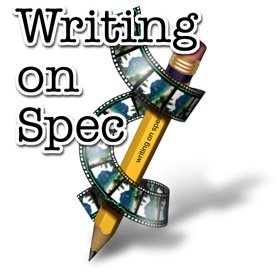How Come It's Not Getting Easier?
I've liked Shane's stuff over the years. Although he did have one flick that I can't find, the others, I've enjoyed reading and watching. Lethal Weapon was my reading blueprint for some time. His writing taught me that you need a writing style. It doesn't have to be talking to the camera or any of his numerous traits, but you would hope that after awhile, you develop a rhythm of language of your own. I don't know that I could go as far as to say that you could recognize the writer from the writing, but certainly if held up beside another sample, you could tell if the two samples were from the same writer or two different writers.
Recently, I was reading an article about Shane Black and his recent film Kiss Kiss, Bang Bang. He said something that struck a chord with me. I'll paraphrase since i'm too lazy to go fetch the article. It was something like, 'you always figure that the more you write, the easier it'll get. I mean, if you make shoes for 20 years, you should be able to knock out a pretty good shoe in a short amount of time. But writing just gets harder every time.'
Think about that. Normally, you'd figure with experience comes expertise. But is that really true? Looking back I started to see a meaning between his lines.
When I started writing, I just wrote whatever I wanted. Whatever was funny, moving, interesting, etc. Whatever the characters wanted to do, that hit the page. (it wasn't really as crappy as it sounds, but it's never going to sell either).
So then I learned a little about screenwriting. Now I need a 3 act structure (well, ANY structure, but 3 Act was IN then). This meant the inciting incident, first act break, mid point and 2nd act break.
Okay. I'm rockin' now. I've got a script with all these elements. It's kickin' ass and takin' names. Or it's just getting passed on all over the place because it's really not that good. You see....
What I realized next was that the characters really had to have a meaning behind everything they said. You really can't just have them say *anything*. It has to mean something to the characters and/or the story. Same with their actions. Everything has to be for a reason. They are in this place/time because X happens or Y is said.
Boy. When I got THAT down. It was all over. Now I had it made. Three act story with every scene meaning something to the story.
How come it didn't work? Well, of course, it's because I was lacking a Theme. Something that the story was saying to the cosmos. That's what all the scenes and character situations had to play off (in some form or fashion).
Then there's the character arc of at least one character, perhaps more, perhaps none - all depends on the type of story. Which then leads to genre types and expectations. If you're going to write that horror movie, you need to hit certain points in the story. Not because it's formula, but because it's the recipe for a horror film. Without those points, it's not horror, it's something else. Oh, and there are several genres, each with a different recipe and expectant learning curve.
Oh, can't forget High Concept. Whatever my story is, it has to be something that will be interesting to just about everybody in a one or two sentence teaser.
Holy cow! What a laundry list of things to do. There's more, I know. It just makes your head spin. For TV it's even worse because of the necessities of their format. The problem is for self-starters, you're in one of two camps. Camp 1 - you get all the information and it's a case of information overload. The brain can't process it, so you forget most of it until you can deal with it (several scripts later probably). Or, you're in Camp 2 - where you don't get all the info at the same time, but you get it over a number of years. Either way, the information that you need in order to write a professional script is undoubtedly years away (from when you start).
The bottom line is that we grow with each script. Hopefully, we're able to incorporate a little more of the professional's skills into each new story and be one step closer to being a better screenwriter. If somebody who has made it can admit that it's really like starting over each time, then we should all be able to face it, accept it and move forward without fear.
Labels: Screenwriting

1 Comments:
Which is why I think screenwriting is the hardest writing of all. So much thought MUST go into each word... Each sentence... Each paragraph... scene... Each sequence... You get the idea.
You're on the right track to be considering all of this. This is INDEED one the steps to becoming a pro.
Become a student of structure. Find the ONE that best suits your style of writing and then absorb it 1000%.
The writing doesn't get easier.
It gets increasingly harder because with each element you learn, you must now incorporate that element.
You must challenge yourself. You must always keep learning.
Good stuff!
Unk
Post a Comment
<< Home